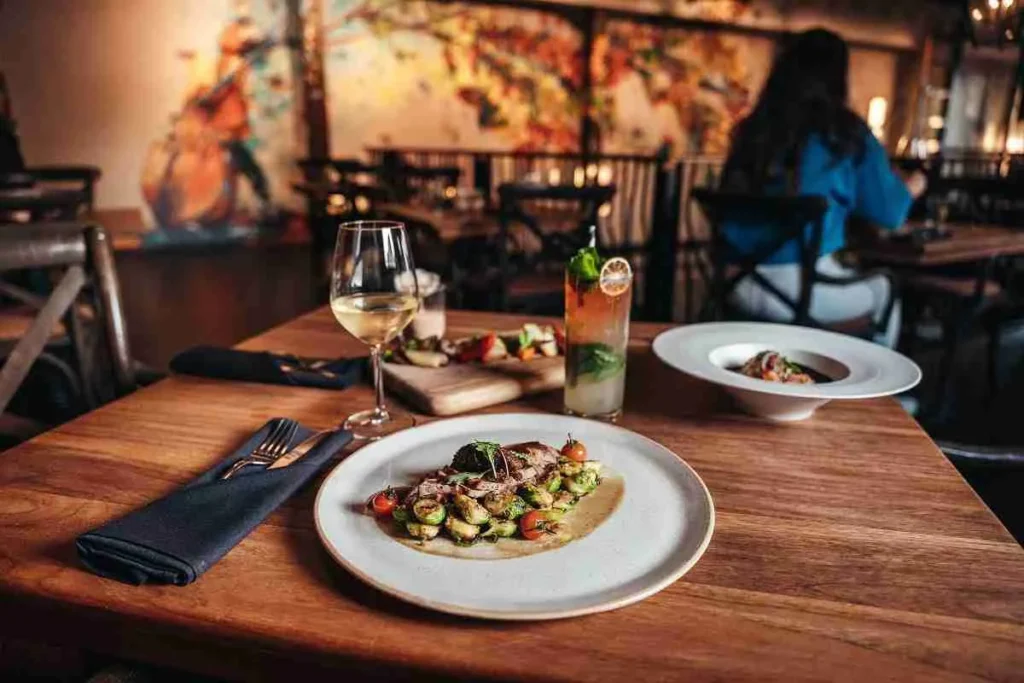Curaçao’s food culture is a vibrant fusion of African, Dutch, Caribbean, Latin American, and Sephardic Jewish influences. The result is a flavorful and diverse culinary scene that reflects the island’s multicultural heritage.
Here’s an overview of Curaçao’s food:
1. Traditional Dishes
Keshi Yena
- Curaçao’s national dish.
- A large edam cheese hollowed out and stuffed with spiced meat (often chicken or beef), vegetables, olives, raisins, and capers.
- Baked until the cheese is golden and slightly melted.
Stoba
- A general term for stews made with different meats.
- Carni Stoba – beef stew
- Kabritu Stoba – goat stew
- Cooked slowly with vegetables, potatoes, and spices.
Piska Kora (Red Snapper)
- Popular local fish, usually fried and served with funchi (cornmeal mush) or banana hasa (fried plantain).
2. Sides and Staples
Funchi
- A type of Caribbean polenta made from cornmeal.
- Served as a side to meats, fish, or stews.
Tutu
- Similar to funchi but mixed with black-eyed peas, sugar, and spices.
- Slightly sweet and hearty.
Fried Plantains (Banan Hasa)
- A staple side dish, balancing sweet and savory meals.
3. Street Food & Snacks
Pastechi
- Deep-fried pastry filled with cheese, tuna, chicken, or beef.
- Popular for breakfast or as a snack.
Kroket & Bitterballen
- Dutch-inspired croquettes filled with meat ragout.
- Common in bars and snack shops.
Johnny Cakes
- Fried dough patties filled with cheese, saltfish, or meat.
Saté (Skewers)
- Grilled meat on skewers, served with peanut sauce—Dutch-Indonesian influence.
4. Desserts
Kokada
- Coconut candy made with sugar and grated coconut.
Bolo di Kashupete
- Cashew cake, rich and often served at weddings and celebrations.
Panlevi
- A light, spongy cake with Caribbean flavorings like vanilla or citrus.
5. Drinks
Blue Curaçao Liqueur
- World-famous liqueur made from the laraha citrus fruit, native to the island.
- Used in tropical cocktails like the Blue Lagoon or Blue Margarita.
Awa di Lamunchi
- A refreshing limeade made with fresh lime juice and water.
Rum & Aguardiente
- Used in many local cocktails; sometimes infused with tropical fruits.
6. Unique & Cultural Foods
Iguana Stew (Yuana Stoba)
- A local delicacy; iguana meat is said to taste like chicken.
- Often served with rice or funchi.
Jewish-Inspired Dishes
- Reflecting Curaçao’s Sephardic Jewish heritage.
- Includes savory pies, cured meats, and unique holiday treats.
Where to Eat Curaçaoan Food
- Marshe Bieuw (Old Market in Willemstad): Great for authentic, affordable local meals.
- Local food trucks and “snèks” (snack bars): Perfect for late-night bites like pastechi, saté, and fried chicken.
- Family-run restaurants: Often serve stoba, funchi, and fresh fish.
Summary Table
| Food Category | Examples | Notes |
|---|---|---|
| Main Dishes | Keshi Yena, Stoba, Fried Fish | Rich and hearty flavors |
| Sides | Funchi, Tutu, Fried Plantains | Cornmeal and root-based |
| Snacks | Pastechi, Johnny Cakes, Saté | Widely available street food |
| Desserts | Kokada, Cashew Cake, Panlevi | Coconut and nut-based sweets |
| Drinks | Blue Curaçao, limeade, rum cocktails | Iconic tropical beverages |


